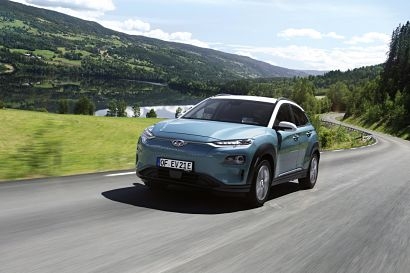
The award is the latest in a raft of wins for Hyundai’s all-electric crossover, which was last year named Auto Express ‘Affordable Electric Car of the Year’, and ‘Car of the Year’ by Next Green Car. Kona Electric is the latest electrified model from Hyundai, joining the Ioniq in the line-up – the world’s first car to be available with three separate electric powertrains; hybrid, plug-in hybrid or fully electric. A total of 18 new electrified models will be introduced to the Hyundai range by 2025.
Hyundai will also continue to develop its Fuel Cell technology, releasing its latest generation Fuel Cell powertrain in the Nexo early this year, and securing a 500,000-units-per-year Fuel Cell vehicle production capacity by 2030.
“At Hyundai, we have very purposely developed a range of electric, hybrid and plug-in hybrid models that will meet the needs of the fleet market – Kona Electric chief among them – so this latest award from the experts at Fleet World couldn’t be more relevant” said Michael Stewart, Fleet Director at Hyundai Motor UK. “Packed full of standard equipment, sold with the peace-of-mind of Hyundai’s five-year unlimited mileage warranty and with lower running costs than combustion-engined competitors, Kona Electric is absolutely ideal for company car customers.”
Martyn Collins, Fleet World Editor, added that the Hyundai Kona Electric feels like a tipping point for pure electric vehicles, with up to 279 miles of zero emissions range on a full charge for the bigger 64kWh version and that in the past, many electric vehicles have been compromised in one way or another, but that this Hyundai looks smart plus it’s easy and fun to drive, too.
Hyundai is perfectly positioned to capitalise on new company car tax rules beginning in April 2020, which will see the amount of Benefit-in-Kind tax paid on the retail value of a purely electric car fall from 16 percent to just 2 percent. The amount of tax due on a range-topping Kona Electric 64KWh Premium SE for standard rate taxpayers would fall from £1,235 to just £154 (2019/2020). For higher rate taxpayers that figure would drop from £2,470 to £309 (2019/2020).
For additional information:

